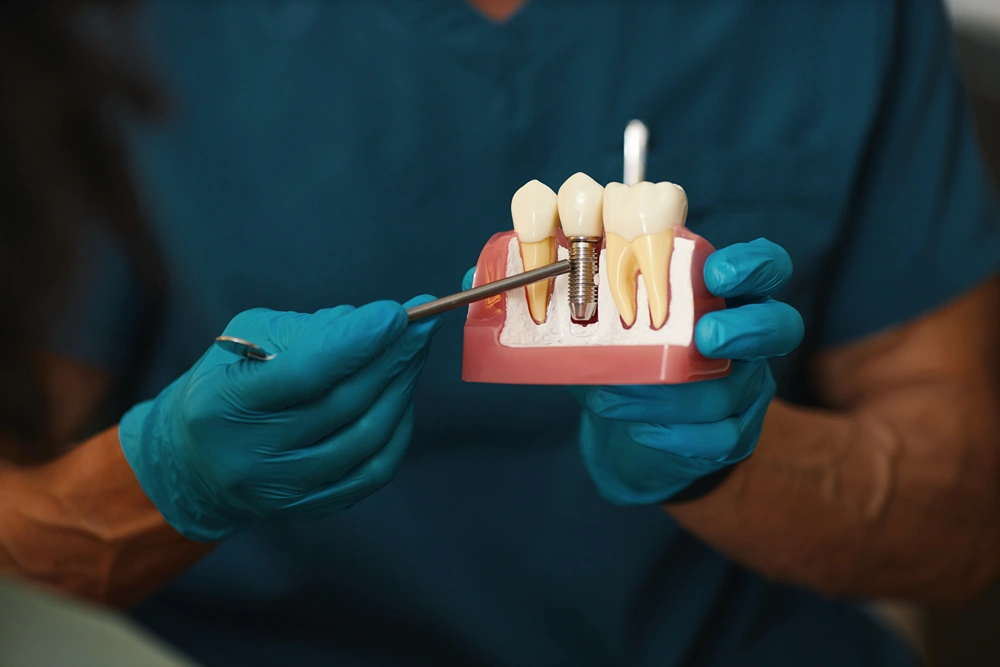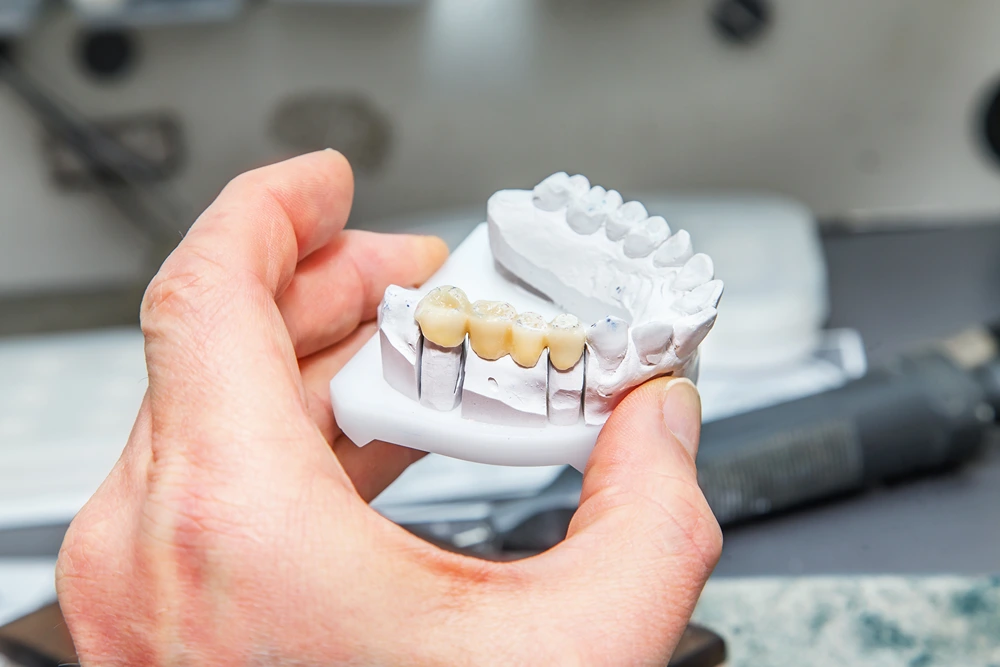Dental Implant vs Bridge: Which Is Right for You?
For most people, having a healthy set of teeth is an investment. Keeping your pearly whites clean, aligned, and complete involves quality tools and treatments. You’re left with two options when missing a tooth or two: getting dental implants or dental bridges. But which one’s better? Can anyone with missing teeth wear them?
Read on to help you find the ideal solution from the implant vs bridge debacle, as we explain the major differences and discuss their appropriateness for children.
The Difference Between Dental Implants and Bridges
Dental implants are artificial teeth that are designed to look like real teeth. A dentist will surgically implant them into the patient’s jawbone. The implant, or screw, serves as the artificial tooth root. The crown matches the shape and look of your natural teeth and is the fake tooth attached to the abutment. Implants are a considerably popular option among dental patients.
Dental bridges, as the name implies, bridge a gap in your teeth. They also have abutments and dental crowns to replace missing teeth. Whether or not they have implants depends on the type of bridge the dentist recommends. There are four types available:
- Traditional bridge
- Cantilevered bridge
- Maryland bridge
- Implant-supported bridge
Choosing implant or bridge solutions becomes easier when you consult a trusted dentist. They’ll explain the process and benefits of each false tooth option, helping you consider what’s best for your situation.
Still on the fence about deciding between implant vs bridge? Knowing the advantages and disadvantages should make things clearer.
Pros and Cons of Dental Implants
Dental implants offer several benefits, but they have their limitations, too. Here’s what you need to be aware of:

Pros
- A natural appearance
- Don’t damage the adjacent teeth
- Not prone to cavities and tooth decay
- Restore speaking and eating ability
- Last up to 15 years
Cons
- The process could take up to six months
- May not be ideal for patients younger than 18
- Higher upfront costs and likely not covered by insurance
- Oral surgery may lead to complications like infections and nerve damage
Understanding the pros and cons of implants is important to ensure safety and comfort. Convenience is another matter since there’s no other quick way to get implants.
Pros and Cons of Dental Bridges
Dental bridges also have their perks and flaws. These are what to expect:
Pros
- Doesn’t require surgery or bone grafting
- Look like natural teeth
- Lower initial cost and more likely to be covered by insurance
- Typically requires only two dental visits spread over a couple of weeks
Cons
- Not as long-lasting and may need replacements every five to seven years
- Neighboring teeth are more prone to cavities, potentially damaging the bridge
- Loses its natural appearance after some time
- Could damage adjacent natural teeth
Caring for bridges may be another con. Failing to provide proper care to your dental bridge and gums may result in plaque and bacteria buildup. You may end up with issues like gum disease.
Factors Determining the Options
The debate on implant vs bridge often comes down to several factors. Even if you don’t mind the cons of a particular method, your dentist might suggest otherwise. They’ll consider your current situation and choose the best option.
Number of Missing Teeth
The ideal tooth replacement option depends on the amount of tooth loss. If you have only a single tooth missing, your dentist might recommend a dental implant. However, a bridge might be more appropriate if you’re missing more than one.
Cost
Dentists understand that each solution for tooth replacement may be too costly for some. So, they’ll consider your budget, too. Dental bridges could be better if you have insurance, as it will cover the procedure. It’s generally more affordable than implants. But if either method is beyond your price range, ask your dentist if partial dentures or other common options are available.
Time
Another crucial factor is time. Receiving dental implants takes much longer. It could also take a while to undergo each step, from the surgical procedure to the healing period. Getting dental bridges is usually a quicker process.
Overall Health
Since dental implants require surgery, some patients might not be eligible. These include people with leukemia, diabetes, or any medical condition that hinders healing.
Implants, on the other hand, are typically ideal for healthier individuals with jawbones without decay. A healthy bone is necessary for the implant to stick.
Mindset
Not all patients are keen on invasive surgery. If you’re uncomfortable with surgical procedures, tell your dentist. They could recommend non-invasive procedures based on your personal preferences.
Implant vs Bridge: Which is Better for Younger Patients?

While adults should be fine with getting replacement teeth, are kids eligible, too? Some are, but with a few exceptions.
For one, dental professionals are less likely to put implants or bridges on prepubescent children. Jaws that are still maturing could impact bone development. Children who receive teeth replacements too young might experience bite problems, bone loss, and aesthetic changes.
However, some pediatric dentists may suggest Maryland bridges to aid dental alignment. Since they are not invasive, they’re a more conservative option for younger patients.
Teens aged 18 to 19 are generally more qualified if their jaws have matured. Dentists will still need X-rays and assessments to check if their bones have been 100% developed.
Final Thoughts
Not sure what to pick between implant vs bridge? This piece should have helped you decide. Each option is excellent for replacing lost teeth and encouraging better oral health. But if you still have doubts, feel free to consult a dentist to make an informed decision.
If you’re considering these treatment options for your children, a dentist will also recommend the safest procedure for their age. Expert opinion is essential when making choices for your child’s health.




